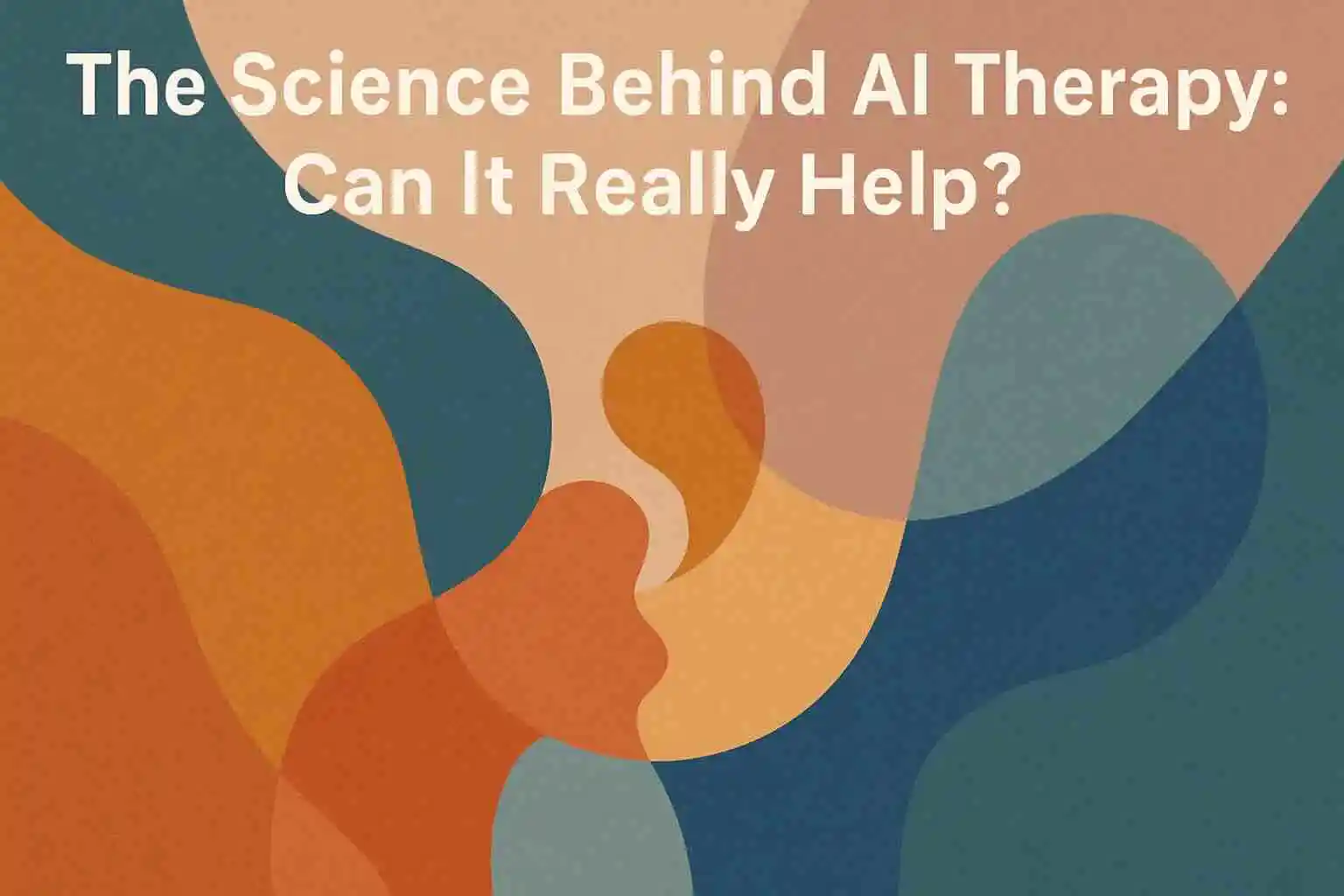TL;DR
AI therapy (like Noah AI) offers 24/7, stigma-free support and evidence-based interventions using conversational chatbots. Scientific trials show it can reduce symptoms of depression and anxiety for many, but it’s best as a supplement—not a replacement—for human therapists. Noah AI fills the therapy gap with low-cost, accessible care, but complex cases still need human expertise and oversight.
Why AI Therapy Is Growing Fast
Millions struggle to access traditional mental health care due to cost, location, and a shortage of therapists. That’s where Noah AI comes in: always-available, judgment-free support that utilizes proven cognitive-behavioral techniques via chat, designed to reach those who otherwise get no help.
AI therapy has grown thanks to huge strides in natural language processing. Today’s chatbots can hold surprisingly human-like conversations and offer validated psychological strategies in the palm of your hand. 1 2
Does AI Therapy Work? What Research Shows
Rigorous clinical trials reveal that AI therapy apps (like Woebot, Tess, and Therabot) can help reduce depression and anxiety in two to four weeks. For example:
- Young adults using a CBT-based chatbot reported significantly lower depression scores than controls.
- 2025 clinical evidence: AI therapy led to a 51% average reduction in depression and a 31% reduction in generalized anxiety. 3
- Users often engage with AI more openly than with human therapists, thanks to privacy and perceived safety.
However, meta-analyses caution that benefits are modest, especially for severe mental health conditions, and more robust studies are needed to confirm effectiveness across all groups. Notably, AI chatbots have not shown serious adverse events, but real-world use demands ongoing oversight. 4 5
Core Strengths of AI Therapy
- Accessibility & Convenience: Noah AI is on-demand—you never wait for appointments.
- Affordability & Scalability: AI can support thousands, addressing therapist shortages nationwide.
- Stigma-Free Engagement: People feel safer and less judged talking to an app.
- Infinite Patience & Structure: Noah AI never gets tired or frustrated; it reliably delivers evidence-based prompts and tracks your progress.
- Personalization: Data-driven insights help Noah tailor exercises and interventions to your needs over time.
- Innovative Engagement: Interactive, chat-based experiences encourage people to stick with their care plans.
AI Therapy vs. Traditional Therapy
Noah AI shines as a front-line, supportive companion—especially for mild to moderate concerns and for building healthy habits. Traditional therapy is superior for in-depth, complex mental health care, crisis management, and lasting therapeutic relationships.
Key Limitations & Ethical Considerations
- Emotional Depth: Noah AI can simulate empathy and guidance, but cannot feel real human emotion.
- Complex Cases: Severe depression, suicide risk, or trauma require human professionals; AI is not a replacement.
- Privacy: Data security is paramount. Noah AI uses encrypted systems, never shares your data, and complies with best practices. 6
- Risk of Misdiagnosis: AI may miss subtle cues or provide generic advice not suited to unique individual needs.
- Regulation & Safety: Not all AI therapy apps meet rigorous clinical standards—Noah AI is continually updated with oversight and evidence-based protocols.
The Most Effective Use Case: Partnership
The future of mental health is collaborative: Noah AI supports you between therapist visits, helps you build daily habits, and sends insights to your human provider when appropriate. Studies already show hybrid care models may improve outcomes—making both tech and human touch more powerful together. 7
FAQs
Is Noah AI a replacement for real therapists?
No. Noah AI is a supplement designed to make care more accessible, offer immediate support, and empower users with proven psychological tools.
Is my data safe with Noah AI?
Yes. Noah AI uses end-to-end encryption and strict privacy controls. No data is shared without your consent.
Does it work for severe issues?
AI therapy works best for mild to moderate symptoms. If you experience a crisis or deep psychological distress, seek help from a licensed human professional.
Can Noah AI really improve my mood or anxiety?
Clinical research and user stories show AI therapy can help many people build resilience and improve symptoms, especially when used consistently as part of a broader self-care plan.
Conclusion: Noah AI Brings Science-Based, Accessible Support
AI therapy isn’t a panacea, but it’s a powerful tool to bridge the mental health gap. Noah AI leverages cutting-edge technology, real evidence, and empathy-driven design to make mental health support more accessible, affordable, and stigma-free. For many, it’s the difference between struggling alone and having a guide in their pocket, every day and night.
Ready to try a science-backed AI therapy companion? Explore Noah AI and join the future of mental health care—where technology and humanity work together for your well-being.







